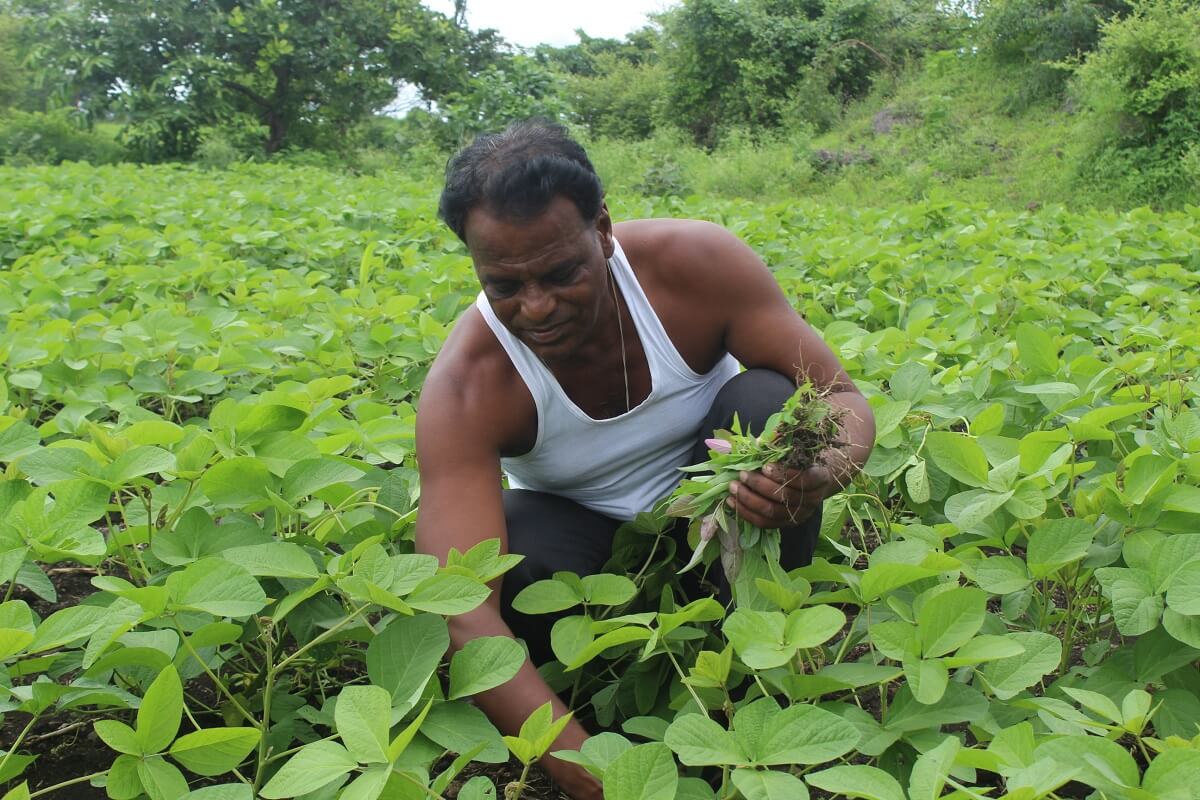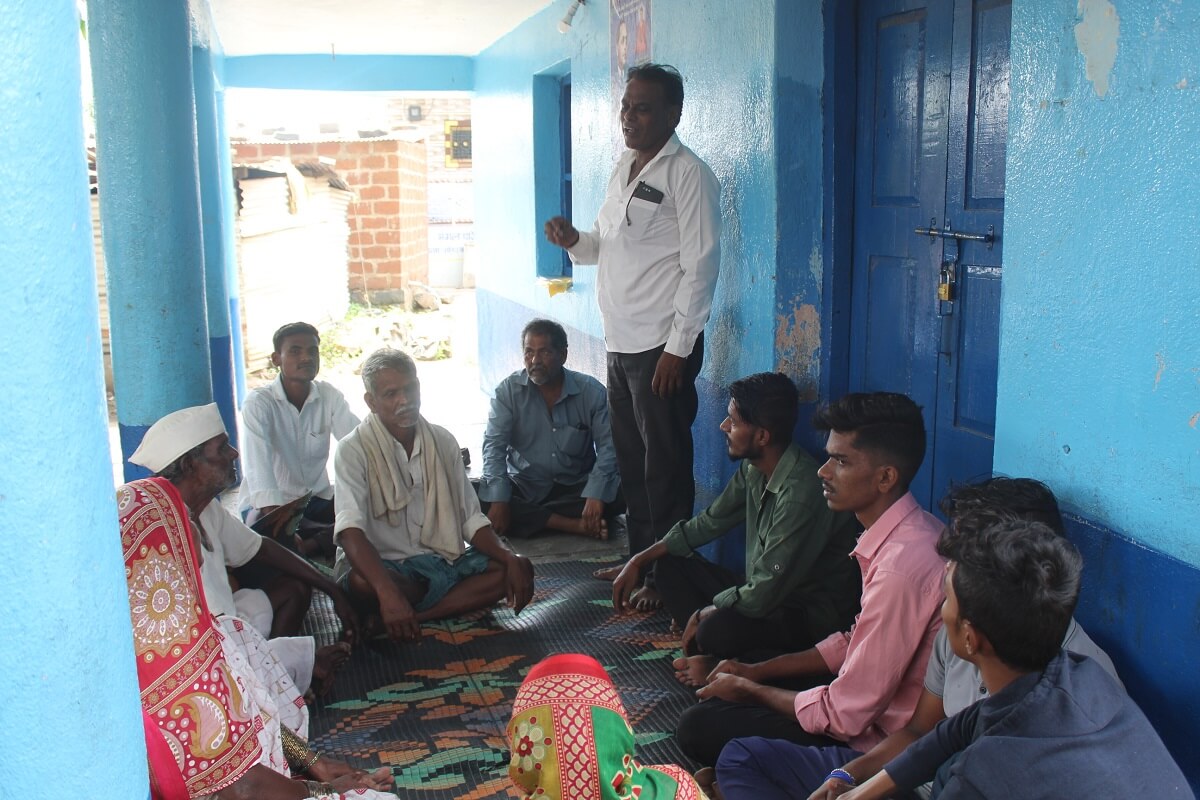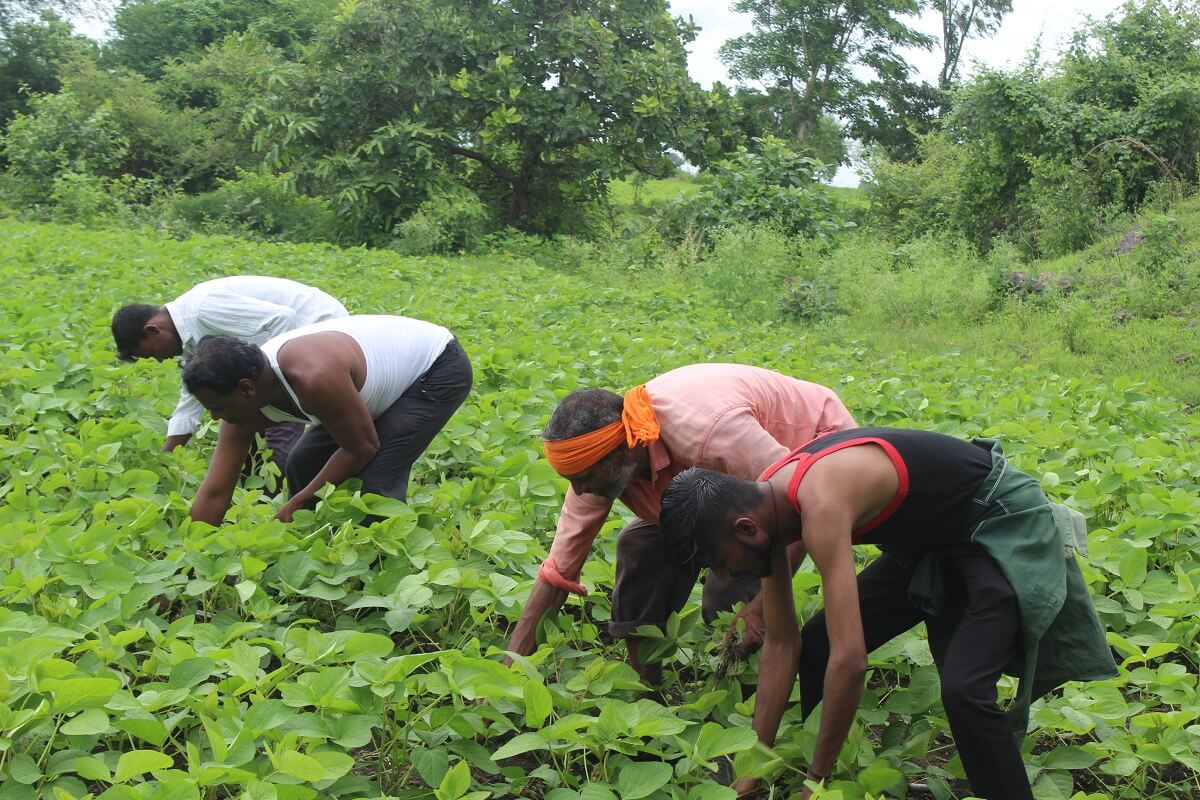Basaava Swami, a 50-year-old farmer from Kherada village in the Aurad taluka of Bidar district, had long been practising conventional farming methods. However, his curiosity led him on a path of discovery of SCI-system of crop intensification which revolutionised his farming practices. Basava’s story is a testament to the transformative power of sustainable agriculture and the positive impact it can have on farmers and the environment.

Basava Swami’s Green Revolution
In the sun-baked terrains of Kherada village, Bidar district, Basava Swami, a farmer of 50 years, tilled his 5-acre land. Decades of traditional farming bore heavily on him. Dry spells, escalating costs of chemical fertilisers, and dwindling returns had become a constant cycle. The horizon seemed bleak, but Basava, resilient as the land he cultivated, was determined to rewrite his farming narrative.
A serendipitous meeting with the Village Development Committee (VDC) brought Basava face-to-face with the promise of the System of Crop Intensification (SCI) method. Backed by a WOTR implemented programme, experts passionately discussed soil rejuvenation, higher yields, and sustainable practices. Basava’s curiosity was piqued. Diving headfirst, he tried the SCI approach on a single acre.

Guided by the expertise, he integrated legumes like harbara, fortified seeds with microorganisms, enhanced soil using earthworm compost, and devised natural pest barriers using trap crops. As days progressed, his land bloomed and responded. Harvest season saw an unprecedented yield of 800 kg of harbara alone – a testament to the method’s power.
Triumphant, Basava expanded the SCI to his full farm, turning his once struggling plots into thriving expanses of wheat, corn, and soybeans. His story quickly spread, turning curious neighbours into fervent learners at his community workshops. Basava wasn’t just cultivating crops; he was sowing seeds of sustainable revolution in Kherada.

Today, the man who once grappled with farming adversities stands tall as an ambassador of change. Basava’s legacy isn’t just the thriving crops but the ignited hope and passion for sustainable farming in hearts across his community.





